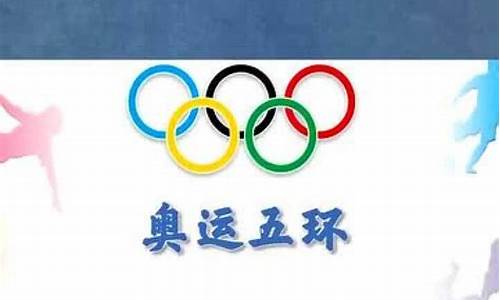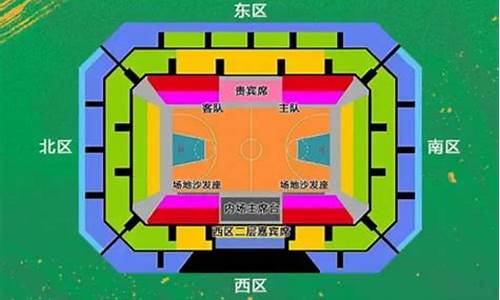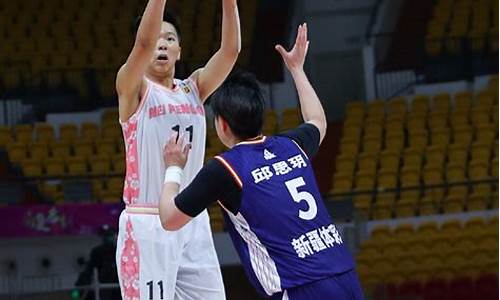1.求一篇英语关于奥运五环的文章
2.奥运五环相连象征着什么
3.奥运五环旗的含义用英语翻译一下~!!

奥运会会旗和奥运会圣火的含义
The OLYMPIC FL
现代奥运会创始人顾拜旦于1913-1914年间设计了奥运会的会旗。它由5个奥林匹克环从左至右套接而成,可以是单色,也可以是蓝、黄、黑、绿、红5种颜色。最初的解释是五种颜色代表各国国旗的颜色,后来又将5个不同颜色的圆环解释为五大洲的象征。1920年,奥林匹克旗第一次飘扬在安特卫普夏季奥运会体育场。这届奥运会后,历届奥运会开幕式上由上届举办城市转交此旗,由举办城市保存,比赛期间主运动场仅悬挂代用品。
Baron de Coubertin designed the Olympic Flag in 1913-14. It has five interlocking rings (blue, yellow, black, green and red) on a white background. The ring's colours were based on the knowledge that at least one of these colours is on every flag of each participating country. The five interlocking rings represent the union of the five continents and the meeting of the athletes of the world at the Olympic Game.
The Olympic Flag was used for the first time in the 7th Olympiad in Antwerp, Belgium in 1920. It is paraded during the opening ceremony of each Game. At the end of the Games, the Olympic Flag is presented to the next host city by the Games host city.
求一篇英语关于奥运五环的文章
早上好~~~ 早上好~~~
以下是原文~
The modern Olympics started in Athens ,Greece in 1896 .I its motto is '' Faster ,higher,stronger''.
The Olympic rings are a symbol of Olympic games .There are five rings , and they stand for the five parts of the world .
The colors of the rings are blue ,yellow ,black ,green and red .You can find a least one of these colors in the flag of each country in the world .
下面是翻译~
现代奥林匹克运动会在1896年起源于希腊雅典。它的口号是“更高,更快,更强”。
奥运五环是奥林匹克的一种象征。它由五个圆环组成,代表了世界的五个部分。
这些圆环分别是蓝色,**,黑色,绿色 和红色。你能在世界上每个国家的国旗上找到至少一种这样的颜色。
如果对你有帮助,那就纳好吗~
he nice day ~
奥运五环相连象征着什么
1.The Olympic Games olympic flag is the management formulates in GuBaidan under. Five links be blue, black, are respectively red, yellow,the green, three links in on, two links in under, are linked together,tight association in same place. Does obeisance the day regarding thiplanation according to the attendance, five links "in the symbolicworld acknowledged the Olympics movement, and prepares to attend theOlympic Games the five continents, but the sixth kind of color white -flag bottom color, Italy refers to all countries all without a singleexception to be able to attend the competition in under the oneselfcountry flag". Afterwards some people explained that, IOC used atfirst blue, black, is red, yellow, the green took five links thecolors were because it could represent participates in the IOC allcountries national flag at that time the color. The 7th session ofOlympic Games got up from 1920, five links five kind of colorssymbolized the five continents: The blue color represents Europe,black Italy refers to Africa, red symbolizes the Americas, the yellowsymbolizes Asia, but the green explains makes Australia. In 13 theIOC published conference proceeding "the Olympics Forum" emphasizedthat, "The conference symbol and the meeting pennant five linksmeaning is symbolizing five continents' unity, world athlete by fair,frank competition and friendly spirit, meets at the Olympic Games."
奥运会五环旗是在顾拜旦主持下制定的。五环分别为蓝、黑、红、黄、绿色,三环在上,两环在下,环环相扣,紧紧联在一起。按照顾拜旦对此的解释,五环“象征世界上承认奥林匹克运动、并准备参加奥林匹克竞赛的五大洲,而第六种颜色白色——旗帜的底色,意指所有国家都毫无例外地能在自己国家的旗帜下参加比赛”。 后来有的人解释说,国际奥委会最初用蓝、黑、红、黄、绿色作为五环的颜色是因为它能代表当时参加国际奥委有国家国旗的颜色。自1920年第7届奥运会起,五环的五种颜色象征五大洲:蓝色代表欧洲,黑色意指非洲,红色象征美洲,**标志着亚洲,而绿色喻作澳洲。 13年国际奥委会会刊《奥林匹克论坛》则强调:“会徽和会旗的五环含义是象征着五大洲的团结,全世界的运动员以公正、坦率的比赛和友好的精神,在奥运会上相见。”
2.The flag features the emblem of the Olympic Games — five interlocking rings (blue, yellow, black, green, and red respectively) on a white field. This was originally designed in 1913 by Baron Pierre de Coubertin, the founder of the modern Olympic Games, but gained widespread popularity due to its promotion by Nazi Germany [1]. Upon its initial introduction, de Coubertin stated the following in the August, 1913 edition of Revue Olympique:
The emblem chosen to illustrate and represent the world Congress of 1914 ...: five intertwined rings in different colours - blue, yellow, black, green, red - are placed on the white field of the paper. These five rings represent the five parts of the world which now are won over to Olympism and willing to accept healthy competition.
In his article published in the "Olympic Revue" the official magazine of the International Olympic Committee in November 1992, the American historian Robert Barney explains that the idea of the interlaced rings came to Pierre of Coubertin when he was in charge of the USA ( Unión des Societes Fran?aise de Sports Athletiques): The emblem of the union was two interlaced rings (like the typical interlaced marriage rings) and originally the idea of Swiss psychiatrist Carl Jung because for him the ring meant continuity and the human being. [2]
“ The Olympic flag [...] has a white background, with five interlaced rings in the centre : blue, yellow, black, green and red [...] This design is symbolic ; it represents the five continents of the world, united by Olympism, while the six colours are those that ear on all the national flags of the world at the present time. ” (1931) Textes choisis II, p.470.
The 1914 Congress had to be suspended due to the outbreak of World War I, but the flag and emblem were later adopted. They would first officially debut at the VIIth Olympiad in Antwerp, Belgium in 1920.
The emblem's popularity and widespread use began during the lead-up to the 1936 Summer Olympics in Berlin. Carl Diem, president of the Organizing Committee of the 1936 Summer Olympics, wanted to hold a torchbearers' ceremony in the stadium at Delphi, site of the famous oracle, where the Pythian Games were also held. For this reason he ordered construction of a milestone with the Olympic rings carved in the sides, and that a torchbearer should carry the flame along with an escort of three others from there to Berlin. The ceremony was celebrated but the stone was never removed. Later, two British authors Lynn and Gray Poole when visiting Delphi in the late 1950?s saw the stone and reported in their "History of the Ancient Games" that the Olympic rings design came from ancient Greece. This has become known as "Carl Diem's Stone". [3] [4]. This created a myth that the symbol had an ancient Greek origin. The rings would subsequently be featured prominently in Nazi images and theatrics in 1936 as part of an effort to glorify the Third Reich and claim a noble and ancient lineage.
The current view of the International Olympic Committee is that the flag "reinforces the idea" that the Olympic Movement is international and welcomes all countries of the world to join. [5] Some literature, such as "The World Encyclopedia of Flags" by Alfred Znamierowski, state that each ring represent the five continents. Using this scheme, the Americas are viewed as a single continent, and Antarctica is omitted.
As can be read in the Olympic Charter, the Olympic symbol represents the union of the five continents and the meeting of athletes from throughout the world at the Olympic Games. However, no continent is represented by any specific ring. Though colourful explanations about the symbolism of the coloured rings exist, the only connection between the rings and the continents is that the number five refers to the number of continents.
奥运五环旗的含义用英语翻译一下~!!
奥运五环分别代表:欧洲(天蓝色)亚洲(**)、非洲(黑色)、澳洲(草绿色)、美洲(红色)。象征着五大洲的友谊和团结。
1.简介:
奥林匹克运动会(希腊语:Ολυμπιακο? Αγ?νε?;法语:Jeux olympiques;英语:Olympic Games)简称“奥运会”,是国际奥林匹克委员会主办的世界规模最大的综合性运动会,每四年一届,会期不超过16日,是目前世界上影响力最大的体育盛会之一。
2.起源和发展:
奥林匹克运动会发源于两千多年前的古希腊,因举办地在奥林匹亚而得名。古代奥林匹克运动会停办了1500年之后,法国人顾拜旦于19世纪末提出举办现代奥林匹克运动会的倡议。1894年成立奥委会,1896年举办了首届奥运会,1924年举办了首届冬奥会,1960年举办了首届残奥会,2010年举办了首届青奥会。
2017年7月,国际奥委会决定由法国巴黎承办2024年奥运会,由美国洛杉矶承办2028年奥运会。
奥运五环
奥运五环从左至右依次是蓝、黄、黑、绿、红,代表奥林匹克运动、五大洲和参加奥运会而相聚在一起的各国运动员。奥林匹克官方网站提示,“每个环代表相应的一个大洲”的说法是错误的。
环旗的诞生
1914年6月,国际奥委会在巴黎召开第十六届全会。全会闭幕的日子——6月23日,正好是顾拜旦在巴黎索邦第一次召集奥林匹克会议建议振兴古代奥运会的20周年纪念日。在奥林匹克运动诞生20年的喜庆之际,国际奥委会顾拜旦男爵向与会的委员们献上了自己的杰作——国际奥委会会旗,它由洁白的底色和蓝、黄、黑、绿、红的五色圆环组成的五环旗.
顾拜旦阐述了这面会旗的象征意义:“蓝、黄、黑、绿、红五环代表以奥林匹克精神参赛的五大洲。此外,这6种颜色(包括白的底色)毫无例外地包含了世界各国的国旗颜色。**和蓝色代表瑞典,蓝色和白色代表希腊、法国,英国、美国、德国、比利时、意大利、匈牙利的三色尽在其中;**和红色代表西班牙,巴西、澳大利亚、日本、中国的颜色也包括在其中。它显然是一种国际性的标志。”全会上响起了热烈的掌声,与会者对这面会旗的形式、颜色和所蕴涵的意义赞叹不已,欣喜不已。
后来又将5 个不同颜色的圆环解释奥运五环
也称为奥林匹克环,从左至右为天蓝、黄、黑、绿、红五色。这个标志是第一届现代奥运会上,由顾拜旦提议设计的,起初的设计理念是它能够概括会员国国旗的颜色,但以后对这五种颜色又有其他的解释。19年国际奥委会出版的《奥林匹克评论》(第四十期)强调,五环的含义是“象征五大洲的团结,全世界的运动员以公正、坦率的比赛和友好的精神,在奥运会上相见”。 为五大洲的象征.
奥运五环的来历故事
说起五环的来历,曾经有过这样一个有趣的故事。 1936年第11届柏林奥运会第一次举行火炬传递活动,火炬的传递路线自奥林匹亚开始,从希腊北部出境,沿多瑙河穿过奥地利,最后进入德国。为了烘托这一具有象征意义的活动,奥运会组委会卡尔·迪姆及其同事几乎完全按照古奥运会的情景来布置沿途经过的古希腊遗址。火炬到达德尔菲帕那萨斯山的古代运动场时要举行一个特别仪式,这时,迪姆突发奇想,在一个高约3英尺的长方形石头的四面设计并刻上了现代奥林匹克运动的五环标志,放在了古运动场的起跑线一端。仪式结束后,火炬继续北上,而这块作为道具的石头却被留在了古运动场。
由于极少有人知道这块刻有五环标志石头(后被称做“迪姆之石”)的真实身份,此后的很长一段时间,它被当做了“有3000年历史的古代奥运会遗迹”。这个以讹传讹的错误直到20世纪60年代才被德尔菲的希腊官员指出。12年5月,这个文物被送到德尔菲的另一个地方——古罗马广场入口处。
事实上,现代奥林匹克运动的五环标志出自现代奥运会创始人顾拜旦之手。顾拜旦认为奥林匹克运动应该有自己的标志,这个念头在他的脑海里盘桓已久。1913年,他终于构思设计了五环标志和以白色为底印有五环的奥林匹克旗,打算在国际奥委会成立20周年之际推出这个标志。
19 年6 月,国际奥委会正式宣布了会旗和五环的含义:根据《奥林匹克宪章》,奥林匹克旗帜和5 个圆环的含义是:象征五大洲的团结以及全世界运动员以公正、坦率的比赛和友好的精神在奥运会上相见。 奥运五环标志含义和五环标志
奥运五环也称为奥林匹克环,从左至右为天蓝、黄、黑、绿、红五色。这个标志是第一届现代奥运会上,由顾拜旦提议设计的,起初的设计理念是它能够概括会员国国旗的颜色,但以后对这五种颜色又有其他的解释。19年国际奥委会出版的《奥林匹克评论》(第四十期)强调,五环的含义是“象征五大洲的团结,全世界的运动员以公正、坦率的比赛和友好的精神,在奥运会上相见”。
五环之舞(国际奥委会奥林匹克博物馆前的雕塑)
奥林匹克运动有一系列独特而鲜明的象征性标志,如奥林匹克标志、格言、奥运会会旗、会歌、会徽、奖牌、吉祥物等。这些标志有着丰富的文化含义,形象地体现了奥林匹克理想的价值取向和文化内涵。今天,随着奥林匹克运动的不断发展壮大,奥林匹克标志也已经在全世界家喻户晓、深入人心。
奥林匹克五环
《奥林匹克宪章》规定,奥林匹克标志、奥林匹克旗、奥林匹克格言和奥林匹克会歌的产权属于国际奥委会专有。国际奥委会可取一切适当措施使奥林匹克标志、旗、格言和会歌在各国和国际上获得法律保护。为了加强对奥林匹克知识产权和奥林匹克标志的保护,保障和维护奥林匹克知识产权人和奥林匹克标志权利人的合法权益,我国先后颁布了《北京市奥林匹克知识产权保护规定》(2001年10月11日北京市令第85号发布)和《奥林匹克标志保护条例》(2002年2 月4日中华人民共和国院令第345号发布)。
当今世界上流传最广的标志要数奥林匹克五环了,随着奥林匹克运动的发展,它已成为奥林匹克精神与文化的形象代表,五环“转”到哪里,奥林匹克运动就在哪里生根开花。
1914年6月15日~23日,国际奥委会在法国巴黎索邦学院举行代表大会,同时庆祝国际奥委会成立20周年。在纪念大会上,顾拜旦兴致勃勃地拿出自己设计的五环标志和一面印着五环的旗帜向大家展示,并建议将它们作为奥林匹克运动的标志。听了顾拜旦对五环标志的说明后,会议确定将奥林匹克五环和奥林匹克旗作为奥林匹克标志。
奥林匹克五环标志由5个奥林匹克环从左至右套接而成,可以是单色,也可以是蓝、黄、黑、绿、红5种颜色。最初的解释是五种颜色代表各国国旗的颜色,后来又将5个不同颜色的圆环解释为五大洲的象征。国际奥委会选择五个相连的圆环作为其标志,并选择了相应的色彩。五个圆环代表五大洲:大洋洲、非洲、美洲、亚洲和欧洲。更深一层的意思是代表着全世界的运动员都聚集在奥林匹克运动会上。
朴素的白色背景寓意着和平。







